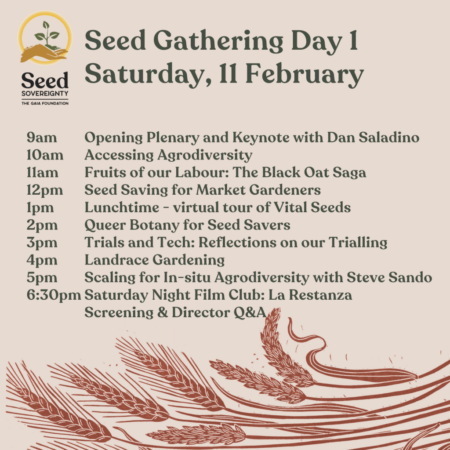Yet another thoroughly satisfying Eat This Newsletter from Jeremy. Here are two snippets on crop diversity, but there’s lots more…
Talking about Eating to Extinction
Dan Saladino’s book Eating to Extinction has justifiably won all sorts of awards since it came out about 18 months ago. Capitalising on that and the interest more generally in vanishing foods and ingredients, Dan and his chums put together a Food Diversity Day on 13 January. I was unable to watch any of it for a host of reasons, but a post by Patricia Bixler Reber on her marvellous Researching Food History website reminded me that all of it is now online. There’s probably enough there to keep you busy for a good long while, and if there isn’t, Researching Food History is always good for a suggestion or two. I’d already booked for one on 31 January that promises to be a bit of a myth-buster (and that may yet become an episode).
Preserving Potato Diversity
Dan Saladino doesn’t devote an awful lot of space to the always-humble potato, which is by no means a criticism; there is so much more to be concerned about. But I suspect he is well aware of some of the more exotic potatoes of the Andes and beyond, with their colourful flesh and skin. Diverse efforts to promote these varieties, by encouraging high-end restaurants as much as low-grade snacks, have had some success in Peru. The latest brings Ecuador into the fold, with crisps/chips made from ancestral varieties known locally as black heart and red heart. The tubers are grown by a collective of 180 small farmers, who are guaranteed a stable price for their crop. I hope they use some of that cash to improve their family nutrition.
And if you’re a gardener with a hankering for some creative potato diversity of your own, I highly commend true potato seed; read a bit about it thanks to Modern Farmer.
